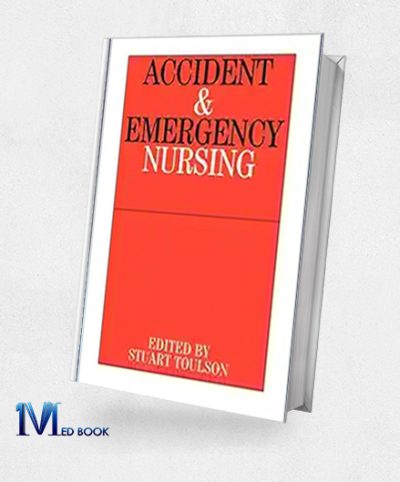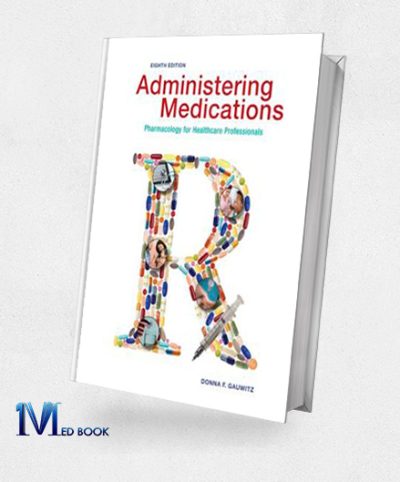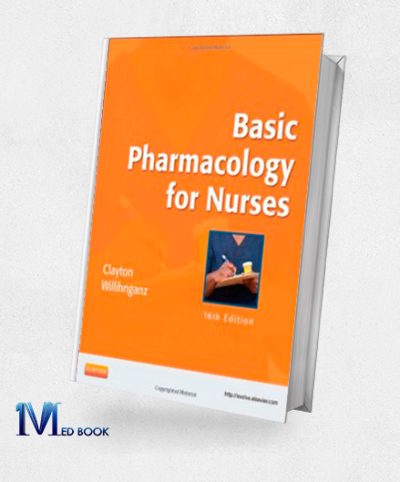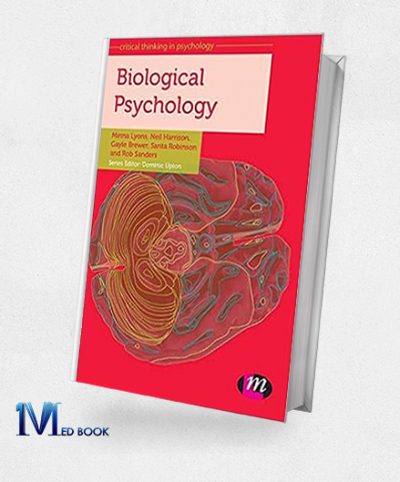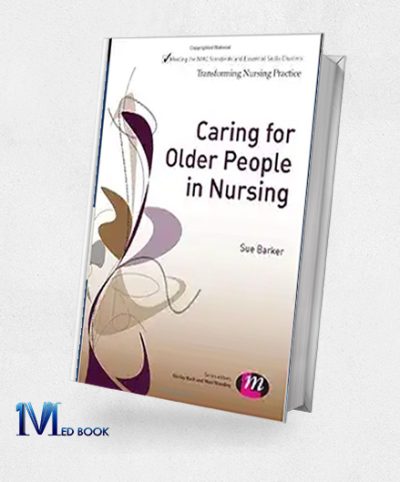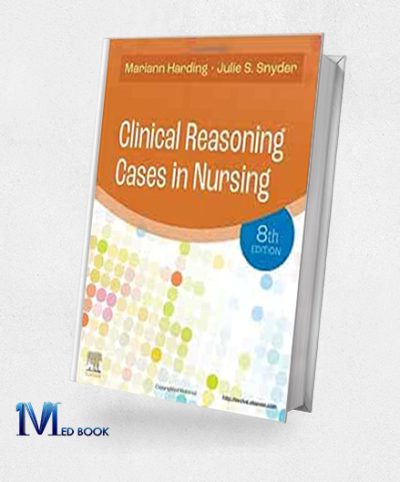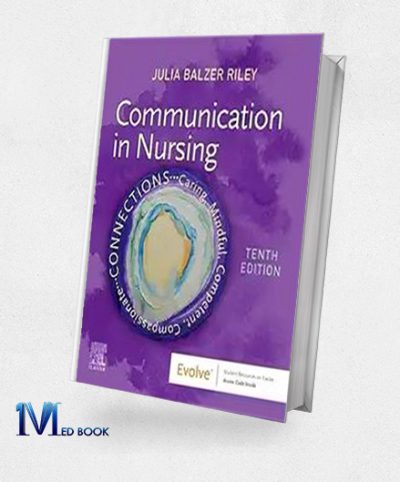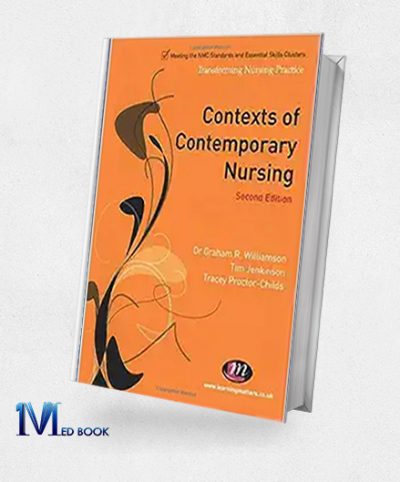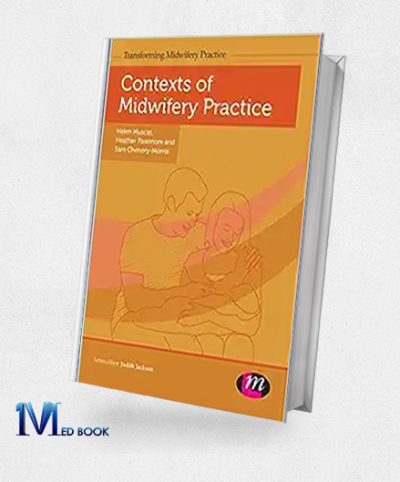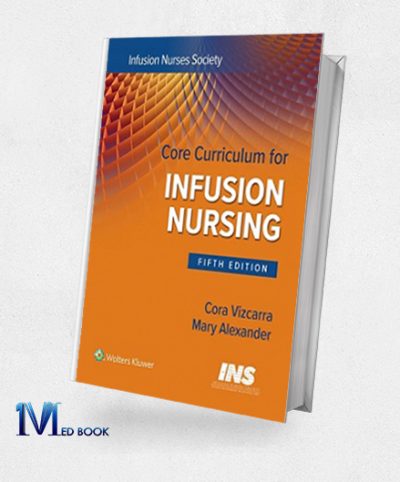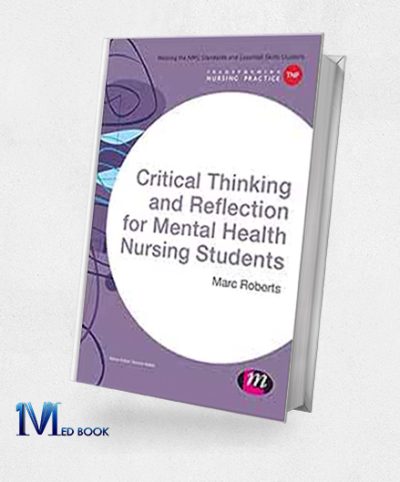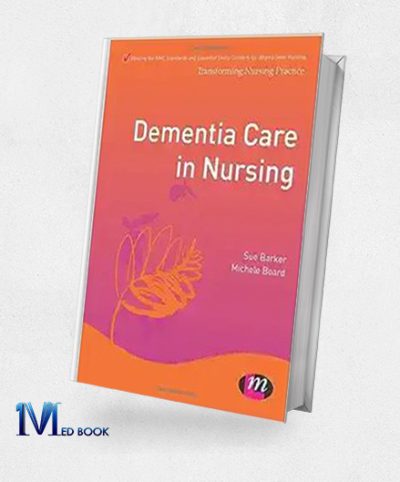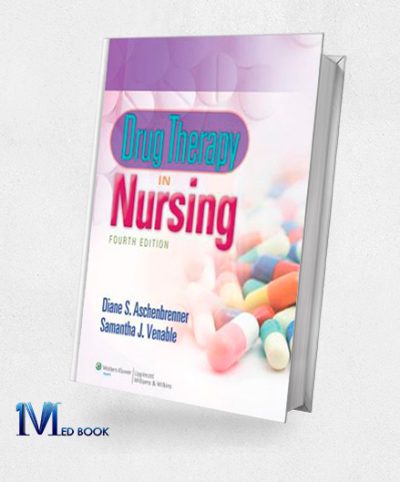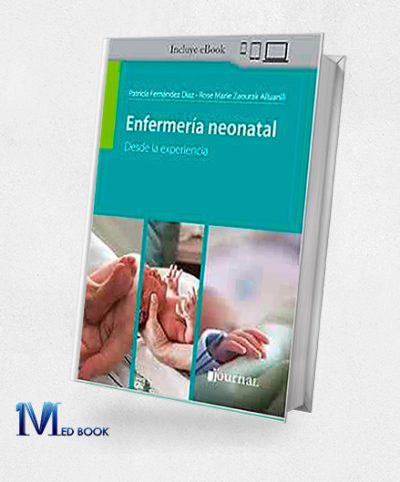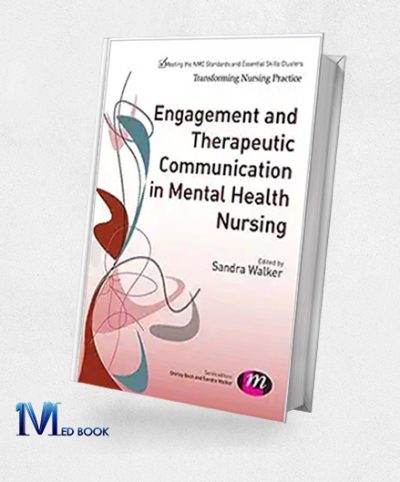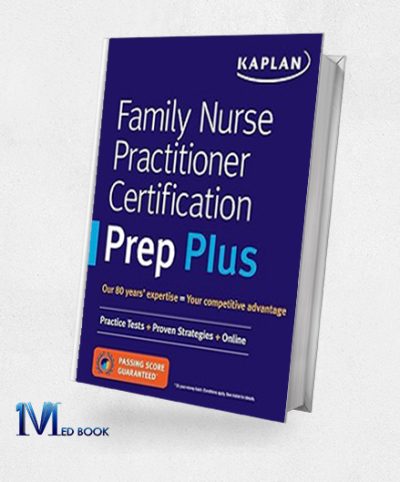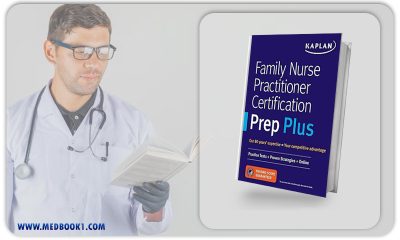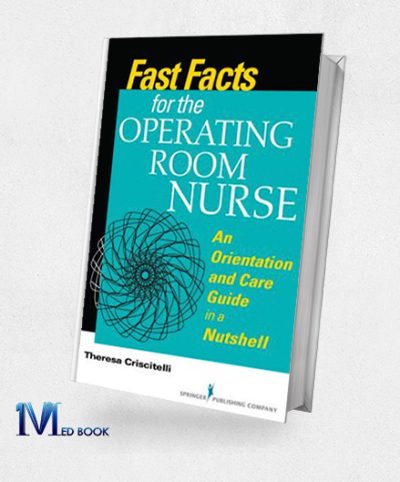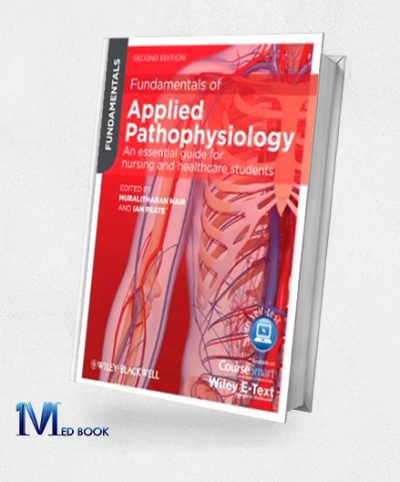Nursing
Accident And Emergency Nursing (Original PDF From Publisher)
Original price was: $102.30.$27.00Current price is: $27.00.Administering Medications 8th Edition
Original price was: $140.00.$24.00Current price is: $24.00.Advanced Nutrition and Human Metabolism 6th Edition (Original PDF from Publisher)
Original price was: $208.00.$21.00Current price is: $21.00.Anatomy and Physiology for Nurses, 14th Edition (Original PDF from Publisher)
Original price was: $54.95.$30.00Current price is: $30.00.Assessing Evidence To Improve Population Health And Wellbeing (Transforming Public Health Practice Series) (Original PDF From Publisher)
Original price was: $56.00.$23.00Current price is: $23.00.Basic Pharmacology for Nurses 16e
Original price was: $64.47.$23.60Current price is: $23.60.Biological Psychology (Critical Thinking in Psychology Series) (Original PDF from Publisher)
Original price was: $61.00.$22.00Current price is: $22.00.Calculate with Confidence 6th Edition (Morris Calculate with Confidence)
Original price was: $36.65.$22.00Current price is: $22.00.Caring for Older People in Nursing (Transforming Nursing Practice Series) (Original PDF from Publisher)
Original price was: $177.00.$23.00Current price is: $23.00.Clinical Reasoning Cases in Nursing, 8th Edition (EPUB)
Original price was: $89.00.$27.00Current price is: $27.00.Cognitive Psychology (Critical Thinking in Psychology Series) (Original PDF from Publisher)
Original price was: $53.60.$22.00Current price is: $22.00.Communication in Nursing, 10th Edition (EPUB)
Original price was: $99.79.$28.00Current price is: $28.00.Contexts of Contemporary Nursing (Transforming Nursing Practice Series), 2nd Edition (Original PDF from Publisher)
Original price was: $70.08.$22.00Current price is: $22.00.Contexts of Midwifery Practice (Transforming Midwifery Practice Series) (Original PDF from Publisher)
Original price was: $150.00.$22.00Current price is: $22.00.Core Curriculum for Infusion Nursing, 5th Edition (EPUB)
Original price was: $96.99.$40.00Current price is: $40.00.Critical Thinking And Reflection For Mental Health Nursing Students (Transforming Nursing Practice Series) (Original PDF From Publisher)
Original price was: $144.00.$23.00Current price is: $23.00.Dementia Care In Nursing (Transforming Nursing Practice Series) (Original PDF From Publisher)
Original price was: $65.83.$23.00Current price is: $23.00.Drug Therapy in Nursing 4th Edition (EPUB)
Original price was: $33.05.$21.60Current price is: $21.60.Effective Supervision for Counsellors An Introduction (Counselling and Psychotherapy Practice Series) (Original PDF from Publisher)
Original price was: $164.00.$22.00Current price is: $22.00.Enfermeria Neonatal Desde la Experiencia (High Quality Image PDF)
Original price was: $35.00.$30.00Current price is: $30.00.Engagement And Therapeutic Communication In Mental Health Nursing (Transforming Nursing Practice Series) (Original PDF From Publisher)
Original price was: $156.00.$23.00Current price is: $23.00.Family Nurse Practitioner Certification Prep Plus (Kaplan Test Prep) (AZW3 + EPUB + Converted PDF)
Original price was: $104.99.$28.00Current price is: $28.00.Fast Facts for the Operating Room Nurse An Orientation and Care Guide in a Nutshell (Original PDF from Publisher)
Original price was: $46.13.$22.00Current price is: $22.00.Fundamentals of Applied Pathophysiology An Essential Guide for Nursing and Healthcare Students 2nd Edition (Original PDF from Publisher)
Original price was: $44.33.$21.00Current price is: $21.00.Nursing
1. Introduction to Nursing:
Nursing, an integral component of healthcare, stands as the linchpin of patient well-being. Its historical trajectory charts a course from conventional caregiving to a dynamic and indispensable profession. Nurses today assume a kaleidoscope of roles that surpass the traditional confines of bedside care. They have evolved into advocates, educators, and collaborators within interdisciplinary healthcare teams. The bedrock of nursing lies in fundamental principles, where compassion, integrity, and an unwavering commitment converge to promote the holistic well-being of patients.
As healthcare landscapes shift, nursing continues to adapt, emerging as a force that not only responds to the changing needs of patients but also actively shapes the future of healthcare delivery.
2. Nursing Education and Training:
The odyssey of nursing education is a multifaceted journey characterized by academic exploration, hands-on clinical experience, and a commitment to lifelong learning. Aspiring nurses traverse diverse academic pathways, choosing from an array of programs that cater to their individual goals and inclinations. However, the common thread weaving through these educational endeavors is the significance of clinical experience.
Clinical exposure serves as the crucible where theoretical knowledge melds with practical application. It is within these settings that aspiring nurses hone their skills, cultivate resilience, and develop the keen judgment necessary for effective patient care. Yet, the journey doesn’t conclude with graduation. Ongoing professional development is the compass that guides nurses through the ever-evolving landscape of healthcare. Continuous learning ensures that nurses remain at the forefront of their field, seamlessly integrating advancements and innovations into their daily practice.
Nursing education, therefore, is not merely a stepping stone but an ongoing odyssey, an expedition that transforms individuals into proficient caregivers and advocates for patient well-being.
Roles and Responsibilities of Nurses:
Nurses, as the linchpin of healthcare, assume multifaceted roles that extend far beyond the traditional realms of patient care. Their responsibilities are expansive, embodying advocacy, education, and collaboration within the intricate web of interdisciplinary healthcare teams. The evolving landscape of healthcare demands a dynamic and adaptive nursing profession, one that continually responds to the changing needs of patients and the broader healthcare system.
At the core of nursing roles is patient care, a domain where compassion and clinical expertise converge. Beyond administering medications and implementing treatment plans, nurses serve as advocates for patients, ensuring their voices are heard and their rights upheld. The role of advocate extends to navigating the complexities of the healthcare system on behalf of the patient, fostering a partnership that empowers individuals in their healthcare journey.
Education is another facet of nursing responsibilities, transcending the boundaries of patient interaction. Nurses educate not only patients but also their families and communities. This educational role extends to collaborating with colleagues, sharing knowledge, and contributing to the collective intelligence of the healthcare team. In this collaborative environment, nurses become catalysts for learning, fostering an ethos of continuous improvement and knowledge sharing.
The collaborative nature of modern healthcare underscores the importance of nurses in interdisciplinary teams. Nurses, through effective communication and collaboration, bridge the gap between various healthcare professionals, ensuring a seamless continuum of care for patients. Their unique position allows them to synthesize information from diverse sources, contributing to the holistic understanding of a patient’s health and well-being.
As we navigate the intricacies of nursing roles, we inevitably encounter the cornerstone of patient care – the concept of patient-centered care.
4. Patient-Centered Care in Nursing:
Patient-centered care is the heartbeat of nursing, transcending the traditional medical model to embrace a holistic approach that recognizes the individuality of each patient. Central to this paradigm is the cultivation of therapeutic relationships, where nurses engage with patients in a manner that goes beyond clinical transactions. These relationships are rooted in trust, empathy, and open communication, forming the foundation for effective healthcare delivery.
Effective communication stands as a linchpin in patient-centered care, serving as the conduit through which understanding and trust are nurtured. Nurses, with their unique position at the intersection of patients, families, and the broader healthcare team, facilitate conversations that empower patients to actively participate in decisions about their care. This collaborative approach fosters a sense of shared responsibility, aligning the care plan with the patient’s values, preferences, and cultural context.
A holistic approach to patient care acknowledges that health extends beyond the physical realm. Nurses recognize and address the emotional and psychological needs of patients, understanding that illness impacts the whole person. By integrating emotional and psychological support into their care, nurses contribute to the creation of a healing environment where patients feel seen, heard, and valued.
Fostering patient-centered care goes beyond the clinical setting; it becomes a cultural ethos embedded in the nursing profession. It requires a commitment to ongoing self-reflection, cultural competence, and a recognition of the diversity that exists within the patient population. In doing so, nurses contribute not only to the immediate well-being of their patients but also to the broader goals of healthcare – achieving positive health outcomes and enhancing the overall quality of life for individuals and communities.
5. Nursing Specializations:
Nursing, a profession renowned for its versatility, opens the door to a myriad of specialized career paths, each demanding unique skills and expertise. These nursing specializations go beyond the generalist role, allowing nurses to immerse themselves in areas that align with their passions and interests while meeting the distinct needs of diverse patient populations.
Pediatric nursing, for instance, requires a unique set of skills geared toward the care of infants, children, and adolescents. Pediatric nurses navigate the complexities of childhood illnesses, development, and family dynamics, acting as advocates for their young patients. The ability to communicate effectively with both the child and their family is paramount, creating an environment of trust and collaboration.
Critical care nursing, on the other hand, demands acute clinical judgment and swift decision-making. Critical care nurses work in intensive care units, managing the complex needs of critically ill patients. Their expertise lies in monitoring vital signs, administering specialized treatments, and providing emotional support to both patients and their families during times of medical crisis.
Community health nursing takes a broader perspective, focusing on the health of populations rather than individual patients. Nurses in this specialization work within communities, addressing preventive care, health education, and advocating for public health policies. Their role extends beyond the walls of a healthcare facility, emphasizing the importance of health promotion and disease prevention at the community level.
These specializations merely scratch the surface of the diverse career paths available to nurses. From psychiatric nursing to perioperative nursing, each specialization brings its own set of challenges and rewards, contributing to the rich tapestry of the nursing profession. The versatility of nursing allows practitioners to find their niche, ensuring that the profession remains dynamic and responsive to the evolving needs of the healthcare landscape.
6. Nursing Ethics and Professionalism:
At the heart of nursing lies a commitment to ethics and professionalism, forming the bedrock upon which the entire profession rests. Nursing ethics provides a moral compass, guiding nurses in their practice with principles rooted in integrity, respect for autonomy, and a commitment to the well-being of patients.
Confidentiality, a pillar of ethical practice, ensures that patients trust nurses with their most personal information. This trust is foundational to the therapeutic relationship between nurses and patients, fostering an environment where open communication can thrive. Nurses navigate the delicate balance between sharing necessary information with the healthcare team while safeguarding the privacy of their patients.
Professionalism extends beyond ethical considerations, encompassing a commitment to delivering high-quality care. This commitment is reflected in the pursuit of excellence through continuous learning and professional development. Nurses engage in lifelong learning to stay abreast of advancements in healthcare, ensuring that their practice aligns with the latest evidence-based interventions.
Upholding professional standards requires nurses to navigate a complex landscape of legal and ethical considerations. They act as advocates not only for their patients but also for the integrity of the profession. Ethical decision-making becomes a constant companion in the face of dilemmas, ensuring that the best interests of the patient remain paramount.
In the fast-paced and ever-evolving field of healthcare, professionalism becomes a stabilizing force. It fosters a culture of collaboration, mutual respect, and a shared commitment to the highest standards of care. As nursing continues to evolve, guided by ethical principles and a dedication to professionalism, it remains a beacon of trust and excellence within the broader healthcare system.
In the subsequent section, we delve into the integration of “Healthcare Nursing” as a Latent Semantic Indexing (LSI) term, emphasizing its relevance in the promotion of overall health and well-being.
7. LSI Integration – Healthcare Nursing:
“Healthcare Nursing” arises as a Latent Semantic Indexing (LSI) term, transcending mere semantics to encapsulate the profound significance of nursing in promoting overall health and well-being. This term serves as a powerful symbol, illuminating the integral role nurses play within the broader healthcare system. It is not merely a juxtaposition of words but a representation of the synergy between healthcare and nursing, highlighting the symbiotic relationship that defines the continuum of care.
The term “Healthcare Nursing” underscores the expansive reach of nursing beyond traditional patient care. It embodies the proactive stance nurses take in not only treating illness but also in fostering health and preventing disease. Nurses, as advocates for health promotion, become catalysts for positive lifestyle changes, community education, and initiatives that address the social determinants of health.
In the context of “Healthcare Nursing,” the emphasis extends beyond the individual patient to encompass the health of communities and populations. Nurses actively engage in public health campaigns, advocating for policies that enhance the overall well-being of society. Their role becomes pivotal in addressing health disparities, promoting equitable access to healthcare, and contributing to a healthier society at large.
This LSI term also resonates with the concept of nursing as an integral component of a multidisciplinary healthcare team. Nurses collaborate with physicians, therapists, social workers, and other healthcare professionals to provide comprehensive and coordinated care. The term reflects the seamless integration of nursing within the intricate tapestry of healthcare services, reinforcing the idea that effective healthcare is a collaborative effort where each element contributes to the overall health of individuals and communities.
8. Nursing Leadership and Management:
Nursing leadership and management play a crucial role in steering the ship of healthcare, ensuring that teams navigate the complex terrain with precision and compassion. Effective nursing leaders exhibit a unique set of qualities that inspire and guide their teams toward excellence. These leaders are not only astute clinicians but also visionaries who can anticipate and adapt to the evolving landscape of healthcare.
In the realm of nursing leadership, qualities such as emotional intelligence, communication skills, and a commitment to continuous improvement become paramount. Leaders foster an environment where nurses feel empowered to contribute their expertise, fostering a culture of innovation and shared accountability. Leadership extends beyond titles; it is a dynamic process where individuals at every level can influence positive change.
Nurse managers, on the other hand, navigate the intricacies of healthcare settings, ensuring operational efficiency and the seamless delivery of care. They balance the demands of budgets, staffing, and regulatory compliance while fostering a positive and collaborative work environment. The managerial role is instrumental in creating conditions where nurses can thrive, leading to optimal patient outcomes.
Fostering a positive work environment is not only conducive to the well-being of the nursing team but also directly impacts the quality of patient care. A collaborative and supportive workplace cultivates a culture of teamwork, open communication, and shared goals. Nurse leaders and managers, by championing such a culture, contribute to the resilience and adaptability of nursing teams, ultimately enhancing the patient experience.
9. Challenges in Nursing Practice:
Nursing faces challenges such as burnout, staffing shortages, and ethical dilemmas. Strategies and initiatives, including support programs and ethical guidelines, are pivotal in addressing and mitigating these challenges, sustaining a resilient nursing workforce.
10. Innovation and Technology in Nursing:
Innovation and technology, such as electronic health records and telemedicine, transform healthcare delivery. Nurses, as technology integrators, play a crucial role in utilizing these advancements, enhancing efficiency, and improving patient outcomes.
11. Nursing Research and Evidence-Based Practice:
Nursing research informs evidence-based practice, integrating proven interventions into daily care. Nurses contribute significantly to advancing healthcare knowledge, ensuring that practice aligns with the latest evidence, ultimately enhancing patient outcomes.
12. Global Perspectives in Nursing:
Nursing embraces global perspectives, navigating cultural diversity and contributing to global health initiatives. The challenges and opportunities of providing nursing care in diverse healthcare settings worldwide underscore the profession’s adaptability and universal relevance.
13. Nursing Advocacy and Policy:
Nurses advocate for patient rights and contribute to healthcare policy development, actively shaping legislation. Their involvement in policy discussions highlights the profession’s commitment to advancing the broader health and well-being of individuals and communities.
14. Conclusion:
In conclusion, nursing stands as a dynamic and indispensable force in healthcare. The dedication of nurses to patient care, their ongoing commitment to professional growth, and the collective impact of nursing on the well-being of individuals and communities underscore the enduring significance of this noble profession.

